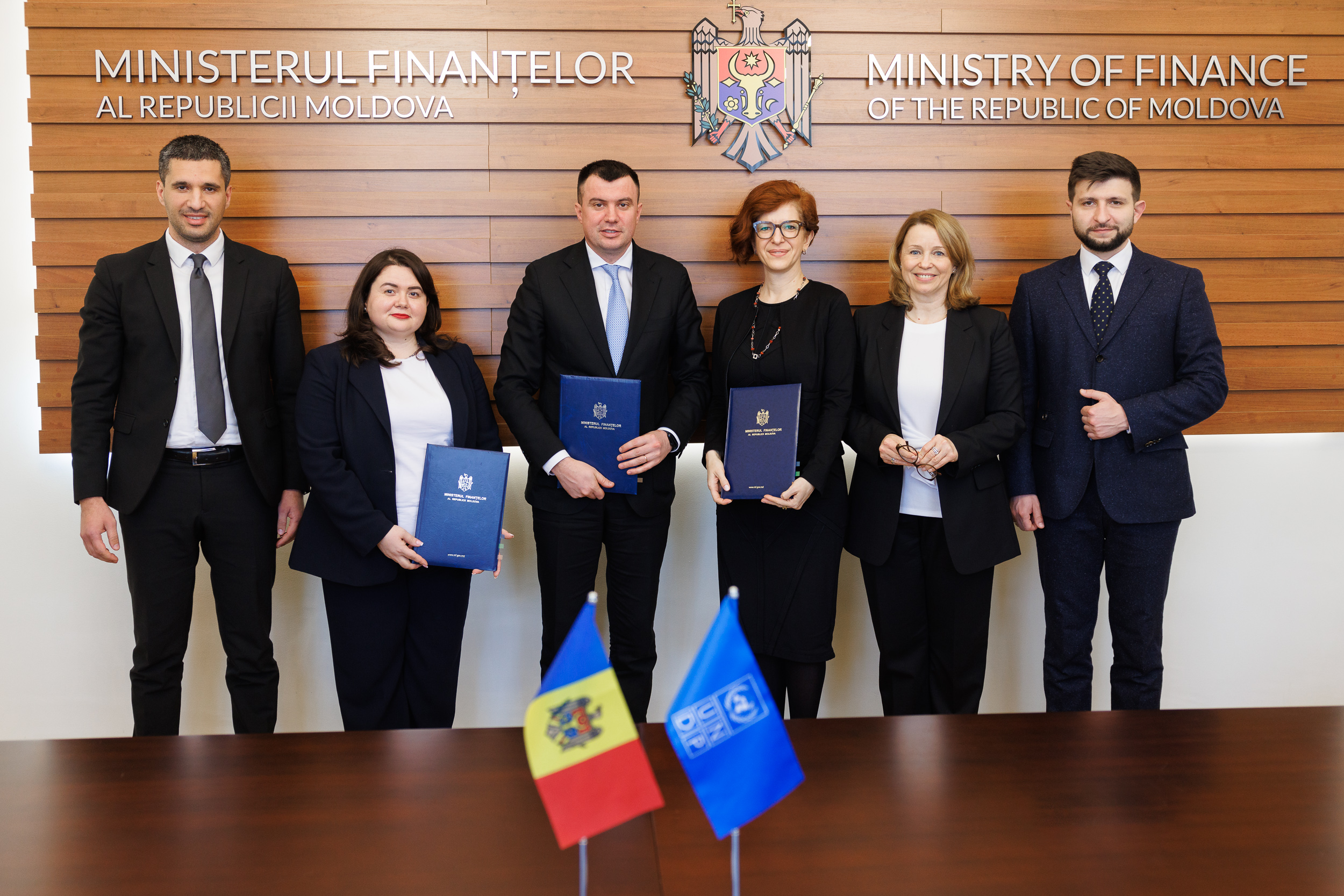The Republic of Moldova will align its fiscal policy with the priorities of the 2030 Sustainable Development Agenda
April 2, 2024

The Ministry of Finance will align its tax policy with the 2030 Sustainable Development Agenda and the 17 Sustainable Development Goals (SDGs), which aim to ensure a decent living for all people in a sustainable, inclusive and prosperous environment.
On 2 April 2024, the Ministry of Finance and the State Tax Service signed a Country Engagement Plan with the United Nations Development Programme (UNDP), which will strengthen the capacity of national authorities to shape a tax system that contributes to reforms that benefit all people, especially the vulnerable. At the same time, additional opportunities will be identified to finance national development priorities.
“The signing of this programme is an important step in our efforts to strengthen the tax system and promote sustainable and inclusive economic growth in the Republic of Moldova. Working with the United Nations Development Programme will allow us to identify and implement tax strategies and policies that respond to the realities and needs of the taxpayers,” said Petru Rotaru, Minister of Finance.
“Financing for Sustainable Development Goals means making the best use of the existing domestic financial resources and directing them towards long-term development objectives so as to empower people, especially the vulnerable, to become self-reliant and have access to growth opportunities. The cooperation plan we signed today also addresses good governance and increased capacity in fighting tax evasion, fraud, and illicit financial flows. We are confident that a culture of integrity will help Moldova to benefit from more development gains,” said Daniela Gasparikova, UNDP Resident Representative to the Republic of Moldova.
”The State Tax Service highly appreciates the openness of the United Nations Development Program to provide assistance to our institution in the field of transfer pricing via the "Tax Inspectors Without Borders" program, as well as in the field of tax administration digitalization. It is important to mention that the State Tax Service has as a priority the development of informational solutions that improve the experience of taxpayers in the process of declaring and paying taxes to the budget and making the activity of the tax administration more efficient. Moreover, the STS makes consolidated efforts in the context of EU accession, such as connecting the information system to international standards. In this regard, the tax authority wants to capitalize on the opportunity to study the international experience related to the SAF-T standard control file, a file type based on the XML standard that is used internationally for the electronic exchange of tax information” said Olga Golban, Director of the State Tax Service.
The Tax Country Engagement Plan aligned to the SDGs provides support for developing the SDG Tax Framework in Moldova, assessment of feasibility and resource implication of tax policy change, mapping of tax expenditures towards SDGs and implementation of the UNDP-OECD (Organisation for Economic Co-operation and Development) “Tax Inspectors without Borders” initiative, which involves specialized tax audit assistance in developing countries around the world.
Previously, with the support of UNDP and the Government of Slovakia, the strategic policy framework in the Republic of Moldova was assessed, which identified challenges and opportunities for financing and achieving the Sustainable Development Goals.

 Locations
Locations



